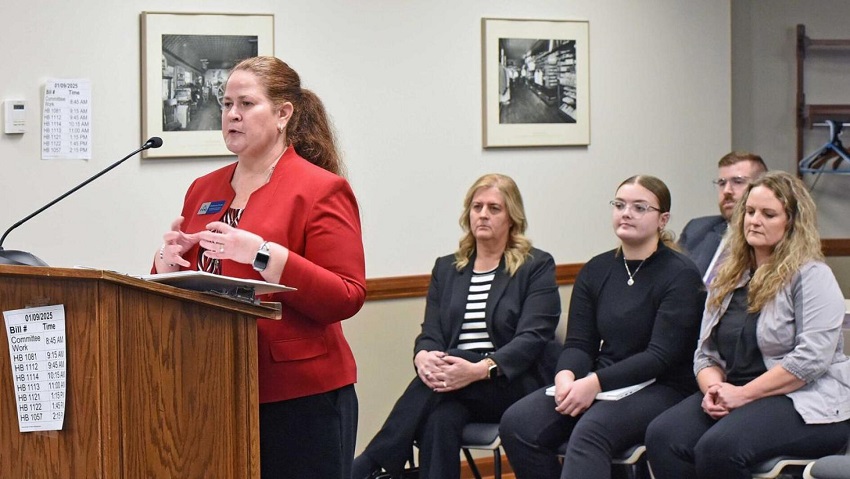BISMARCK, ND — The rising cost of insulin has become an increasingly urgent issue for many families in North Dakota, forcing some to make difficult financial decisions to access the life-saving medication. In response, a new bill moving through the state legislature seeks to address the crisis by capping out-of-pocket insulin costs at $25 per month for individuals with private insurance.
According to the American Association of Retired Persons, more than 57,000 residents in North Dakota rely on insulin to manage diabetes. For many, the escalating price of the drug has made it feel out of reach. One such family is that of Danelle Johnson, whose daughter Danica depends on insulin to survive.
“When Danica was diagnosed, her 90-day supply of insulin was $3,946.99,” Johnson explained. “That’s a lot. And people ask, ‘You don’t pay that, do you?’ And I’m like, absolutely we pay that because as part of our insurance plan, we pay a co-insurance on that retail price. $4,000 every three months to stay alive, that’s ridiculous.”
House Bill 1114, introduced in the North Dakota legislature, aims to alleviate this financial strain. If passed, the bill would cap the out-of-pocket cost for insulin and diabetic supplies at $25 per month for those with private insurance plans. The bill builds on a pilot program that already exists for state employees, which capped insulin costs under a similar model.
Advocates for the bill, including Josh Askvig from AARP, emphasize the importance of addressing the financial burden many face when choosing between insulin, other necessary medications, and basic living expenses. “Oftentimes, people have to make choices between rationing insulin, affording prescription drugs, or prioritizing housing and food,” Askvig said. “House Bill 1114 aims to close a gap in the insurance market to make sure people aren’t paying astronomical prices for insulin.”
More than 25 other states have already passed similar insulin capping measures, but North Dakota’s proposal includes a two-year trial period to evaluate the program’s effectiveness before expanding it to a larger population.
However, the proposal is not without its critics. Some insurance companies have raised concerns that capping insulin costs could lead to higher premiums for policyholders, shifting the financial burden to consumers in other ways.
In response to these concerns, Johnson pointed to a study conducted during the pilot program for state employees, which found that capping insulin prices actually decreased overall costs for the insurance plan. “We certainly heard testimony at the hearing that insurance carriers don’t like mandates,” Askvig acknowledged. “I don’t think out-of-pocket caps should be applied to everything, but in this instance, it’s an important step forward.”
For families like the Johnsons, the urgency is clear. Johnson, who has been advocating for insulin price reform for seven years, expressed frustration over the slow pace of change. “I’m begging people to come to the table and help us resolve the issue, but I don’t want people to die while we’re waiting,” she said. “How much longer do we have to wait?”
Advocates stress that the price cap could mean the difference between life and death for those who cannot afford insulin. As the bill moves forward in the legislative process, lawmakers are expected to make a decision later this session.


